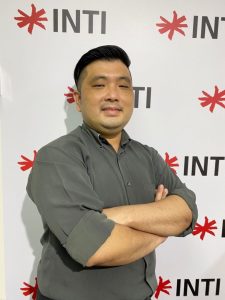As the timeless proverb advises, “Don’t place all your eggs in a single basket.” This wisdom applies equally to investors aiming to construct a resilient portfolio that carefully manages risk while maximizing potential gains. While concentrating investments in a single avenue may offer the allure of substantial returns, it also exposes one to vulnerabilities such as market volatility, economic recessions, or shifts within the industry.
Within the realm of finance, Islamic principles emerge as a compelling remedy, presenting ethical and equitable financial approaches that hold growing significance in our contemporary digital era.
Professor Dr Khang Wen Goh, from INTI International University’s Faculty of Data Science and Information Technology (FDSIT), collaborated with fellow academics from local universities to conduct a study titled “A Review on Portfolio Optimization Models for Islamic Finance,” shedding light on the inherent transparency, justice, and fairness found in Islamic finance.

A study titled “A Review on Portfolio Optimization Models for Islamic Finance” by Prof Dr Khang Wen Goh from the Faculty of Data Science and Information Technology (FDSIT) at INTI International University revealed an equitable and sustainable option for investors with a shariah-compliant investment portfolio.
“Investors are better protected with a portfolio that is Shariah compliant. It has a lower risk profile than other types of finance, optimising returns for investors while making it a more attractive option. It works both ways, to meet both financial and ethical objectives, aligned with Islamic principles,” said Professor Goh.
The study also revealed that Islamic finance’s transparent and secure nature, coupled with its emphasis on social responsibility and sustainability, has captured the attention of investors, including those from outside the Muslim community. In the wake of the global financial crisis of 2008, Islamic finance emerged as a significant presence within the global financial system, offering an ethical alternative to conventional finance while upholding values.
Furthermore, Professor Goh’s findings indicate that conventional models may not be suitable for Islamic investors, as these portfolios fail to comply with Islamic principles and may violate Shariah law.
“The study unveils a new Islamic portfolio optimization model that harmonizes with Islamic principles while addressing the drawbacks of conventional mimicking. By eradicating riba, gharar, and maysir – fundamental tenets of Islamic finance – the model paves the way for notable advancements in social justice, equity, fairness, and the long-term sustainability of business operations.
“ This advancement holds the potential to enhance the viability of the global financial system,” he elaborated, emphasizing the distinctive quality of Islamic finance that attracts investors,” he said, emphasizing that Islamic finance institutions not only capitalize on a rapidly expanding market but also bolster their credibility and legitimacy in the process.
Highlighting the significance of promoting Islamic finance, he emphasized its crucial role in ensuring sustainable financial growth in Malaysia.
“By enabling ethical investments and supporting sustainable development initiatives. Islamic finance becomes a catalyst for positive societal change and contributes to global efforts in achieving the Sustainable Development Goals (SDGs). These goals encompass key areas such as addressing poverty and inequality (Goal 1), fostering sustainable economic growth (Goal 8), promoting industry, innovation, and infrastructure development (Goal 9), and encouraging responsible consumption and production (Goal 12),” he said.
Professor Goh concluded, “Islamic finance provides investors with a transparent, secure, and socially responsible avenue for portfolio optimization. By adhering to Islamic principles and considering the SDGs, investors can achieve their financial objectives while making a positive impact on society.”